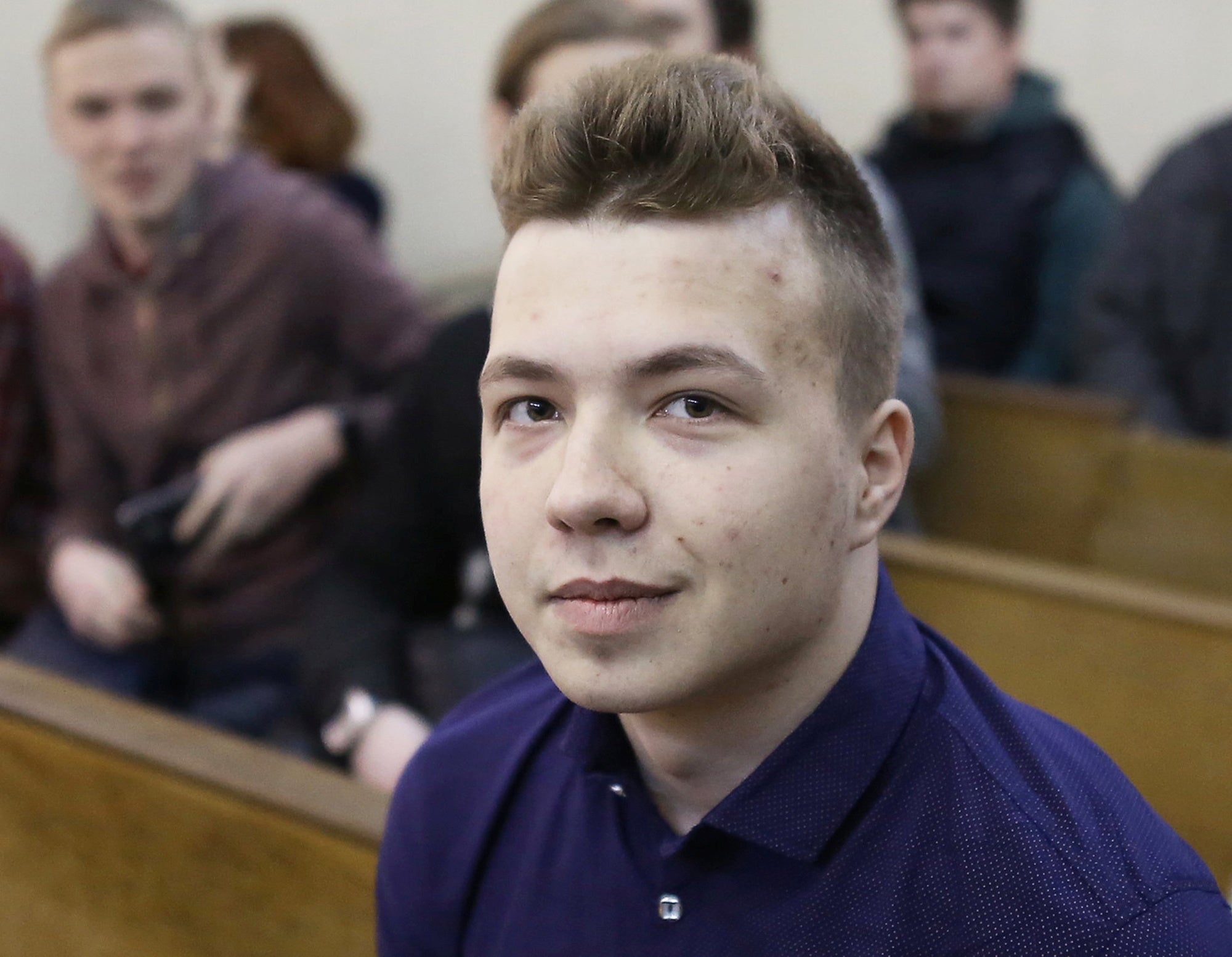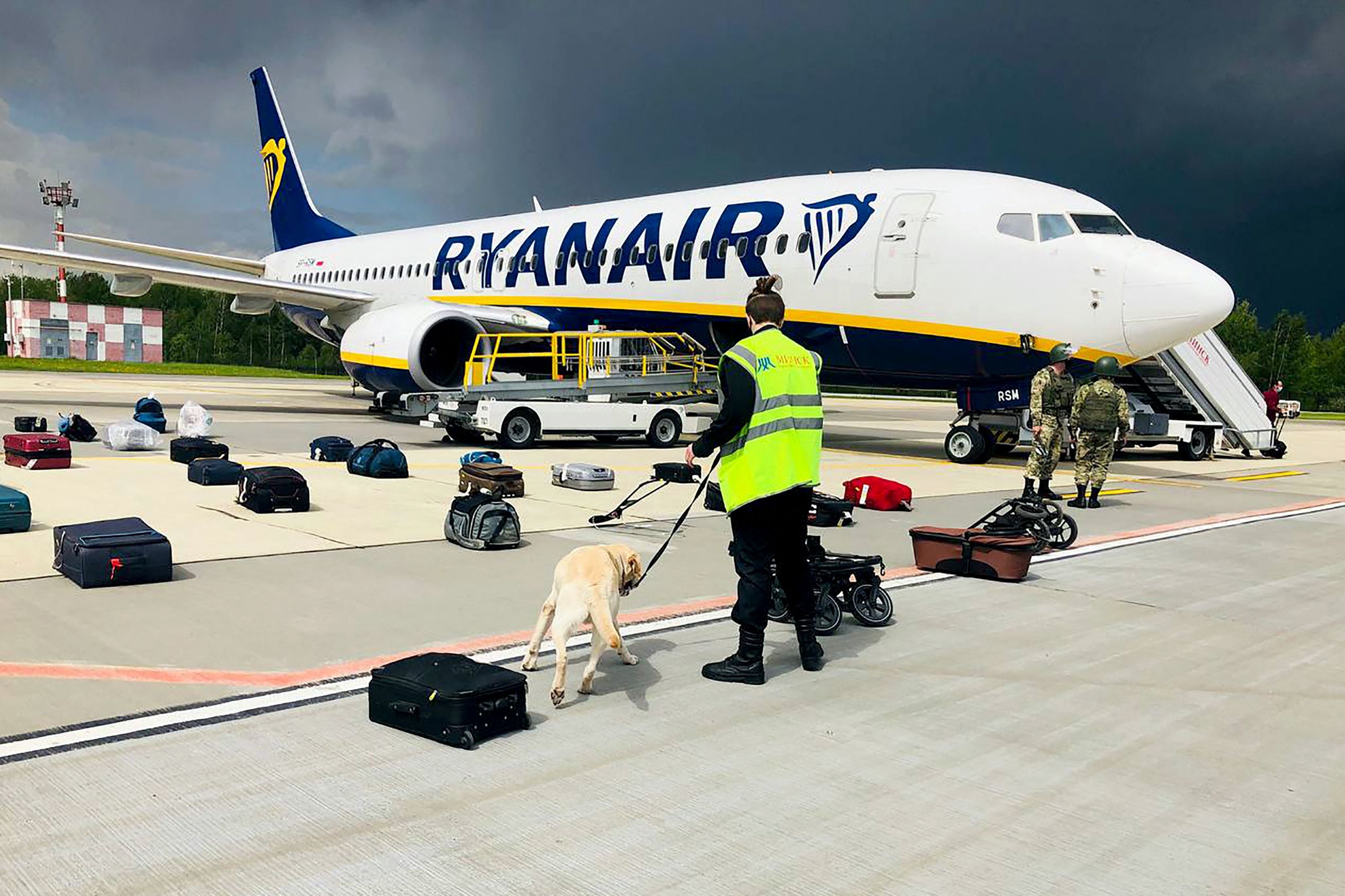Who is Roman Protasevich, the blogger at the centre of the Belarus plane hijack?
Mr Protasevich had provoked the fury of Belarus leader Alexander Lukashenko

For 170 passengers, the forced diversion of Ryanair flight FR4978 to Minsk en route from Athens to Vilnius was a major inconvenience. For one passenger, it was rather more significant.
“A death sentence is waiting for me here,” Roman Protasevich is reported to have told fellow passengers when they asked him why he was panicking and shaking as the Boeing 737 descended into Belarus’s main airport.
It is unclear whether the country’s erratic president Alexander Lukashenko will try to invoke the highest sentence against the 26-year old journalist. But Mr Protasevich has plenty of reasons to be concerned.
As a former editor and co-founder of Nexta (“someone”), the pre-eminent opposition platform during last year’s protests, he regularly invoked the autocrat’s ire at a moment when he was at his weakest. Now emboldened by Russian support, Mr Lukashenko is seeking revenge.
A spokesman said the disputed president personally supervised the astonishing operation, dispatching MiG-29 fighter jets and apparently giving the order to pass on a false bomb alert to the Ryanair crew.
Last year, when the Belarusian opposition staged an improbable campaign to unseat the 26-year dictator following August’s elections that Lukashenko in all likelihood lost by a landslide, Mr Protasevich’s Nexta was the go-to platform for information. It published incriminating videos of state violence, advertised protest helplines and leaked personal details of riot police officers identified in Mr Lukashenko’s brutal crackdown.
When it came to rallies, one post on Nexta was enough to send protesters one way. And another – to turn them back. So great was Nexta’s influence on the streets that critics even suggested Mr Protasevich and co-founder Stepan Putilo were separated from reality, operating protests from their small offices in Poland like a Black Mirror-type computer game.
In a previously unpublished interview he gave me in August, Mr Protasevich said Nexta had “no option” but to step up and open its resources to the opposition movement. At the time of protests, the publication had already massed a large audience as a modern, application-based media.
When Mr Lukashenko started blocking large parts of the traditional internet, Nexta, which used the encrypted app Telegram, came into its own. Within days, it built up a huge readership and briefly became the most popular media in the post-Soviet space. By the end of September, it had registered more than a billion hits.
Pioneering new technology and horizontal protest structures – without tiers of hierarchy – the contrast between Nexta and clumsy state propaganda could not have been sharper.

“We realised it was our time,” the journalist said. “We saw that those who had the potential to be a protest leader were either in prison or under surveillance. It was our time to step up.”
Mr Protasevich always rejected claims that Nexta directly coordinated the protests. What they did was curate readers’ content and leaks, he said: “We take ideas that people give us, work them up, cross-check and present them to the people.”
At the height of the demonstrations, the Nexta team was receiving 10,000 messages an hour, many from sources inside the regime. That gave its editors unique insights into the fears, aspirations and numbers of independent Belarusians, he said.
Back then, Mr Protasevich predicted the powers of the internet meant that Mr Lukashenko’s time was running out fast.
“The internet is an untameable instrument that you can apply to consolidate society and organise,” he said. “I’ve no doubt Lukashenko will fall – and he will fall within weeks.”
Eight months on, the moustachioed leader is still standing, however, and – to Mr Protasevich’s great misfortune – largely in control of what lies ahead.
Join our commenting forum
Join thought-provoking conversations, follow other Independent readers and see their replies
Comments
Bookmark popover
Removed from bookmarks